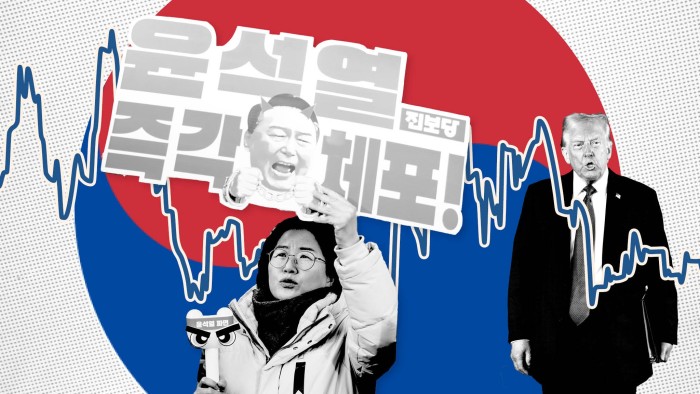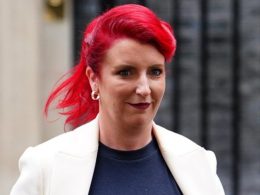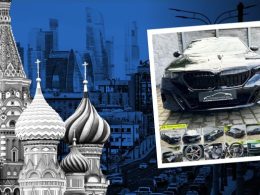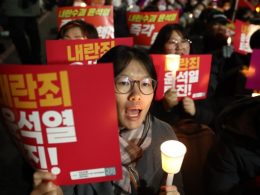South Korea’s worst political crisis in decades is playing out against a darkening economic backdrop, as policymakers grapple with challenges ranging from a tumbling currency and weak consumer confidence to slowing job growth and intensifying competition from China.
Asia’s fourth-largest economy is facing these problems as it navigates twin political shocks: Donald Trump’s re-election in the US and the fallout from South Korean President Yoon Suk Yeol’s failed attempt to impose martial law.
While South Korea’s political strife is likely to exacerbate its economic woes, analysts stressed that these weaknesses predate and go beyond the current crisis.
“Even if the present political crisis were to be resolved soon, there are not many reasons to be optimistic about our economic outlook,” said Park Chong-hoon, head of research at Standard Chartered in Seoul.
Currency weakness
The South Korean won was the worst performer in Asia against the US dollar last year, weakening more than 10 per cent in the fourth quarter. And while a weaker currency often benefits export-oriented economies, South Korea’s reliance on expensive imports, notably energy, outweighed any potential benefits, economists said.
The currency’s slide led the Bank of Korea to defy widespread expectations on Thursday and hold its benchmark interest rate at 3 per cent, despite sluggish growth and signs of trouble in the job market.
“The weaker won seems to be the biggest factor for the BoK’s decision,” said Oh Suk-tae, an economist at Société Générale in Seoul. “It is aware of the bad economic situation, but the bank remains more sensitive to exchange rates than to economic growth.”
Trump threats
South Korea was the largest source of foreign direct investment in the US last year as the country’s manufacturers, attracted by generous subsidies, rushed to set up chip and battery plants.
But a surge in US imports of South Korean goods for those facilities helped drive a record trade surplus, a long-standing bugbear for Trump, making Seoul vulnerable to retaliation.
Finance minister and acting president Choi Sang-mok acknowledged this week that Trump’s threats of across-the-board trade tariffs would have a “significant impact” on South Korea’s export-oriented economy.
“Although Trump is likely to increase tariffs only gradually, this will shake our financial markets and have an adverse impact on our economy,” said Shin Min-young, professor at Hongik University in Seoul.
Slowing growth
The BoK also warned on Thursday that the country was likely to miss its 2024 GDP growth forecast of 2.2 per cent and trimmed its 2025 forecast to 1.8 per cent. That is down from an average annual rate of more than 3 per cent in the 2010s.
“Downside risks to economic growth have intensified, and the volatility of exchange rates has increased,” said Bank of Korea governor Rhee Chang-yong, citing “political risks that have recently escalated”.
Analysts note that pressure on the won as a result of the BoK’s back-to-back rate cuts in October and November was compounded by the US Federal Reserve’s pivot to slowing its pace of easing in response to Trump’s election.
If Trump’s protectionist trade and immigration policies fuel US inflation, as many economists expect, a more hawkish Fed would put further pressure on the won and South Korea’s growth.
Economists also warn that slowing growth is likely to have an outsized long-term impact because of the looming demographic crisis in South Korea, which has the world’s lowest fertility rate.
Political turmoil
South Korea’s ability to address structural economic issues — as well as policymakers’ efforts to lobby the incoming Trump administration — has been paralysed by an unfolding domestic political crisis.
Shortly after Yoon’s aborted martial law declaration last month, Rhee told the Financial Times that Trump’s trade policies constituted a greater risk to the economy than the turmoil at home.
But with the crisis showing no signs of abating after Yoon was arrested this week on insurrection and abuse of power charges, Rhee has changed his tune.
“Previously, US monetary and trade policies were the biggest factors determining how much lower the growth rate would fall,” Rhee said on Thursday. “But I think it now depends more on whether the political process will function stably and whether the economy will perform in the interim.”

Crisis of confidence
The weaker won and political instability have also damaged consumer and business confidence.
Retail sales hit their lowest level in 24 years between January and November last year, according to government figures. Household debt as a proportion of GDP is one of the highest in the developed world, with retailers reporting a surge in demand for discounted goods and food as South Koreans weather growing cost of living pressures.
The country also recorded a net loss of 52,000 jobs last month compared with the previous year, the sharpest fall in four years since the depths of the coronavirus pandemic. Meanwhile, the BoK released a survey this week showing large Korean companies faced more severe credit risks than at any time since 2016.
“The uncertain political environment in South Korea is discouraging companies from investing, and consumers from spending,” said Park at Standard Chartered.
Chinese competition
South Korean exporters in sectors spanning tech, steel, petrochemicals, textiles and cosmetics are struggling to compete with cheaper Chinese rivals, as industrial overcapacity and sluggish demand in China spill over into global markets.
More worrying, Chinese companies are making rapid progress in the development and production of memory chips, South Korea’s most valuable export and its main economic growth driver.
China “has caught up fast with Korea in many key industries”, said Jaemin Lee, a trade expert at Seoul National University.
“If the US blocks Chinese products, this will prove a double-edged sword for Korean exporters as China will try harder to find alternative export destinations,” he added. “All this will mean Korea facing even stiffer Chinese competition in third countries.”
Data visualisation by Haohsiang Ko
Source link










